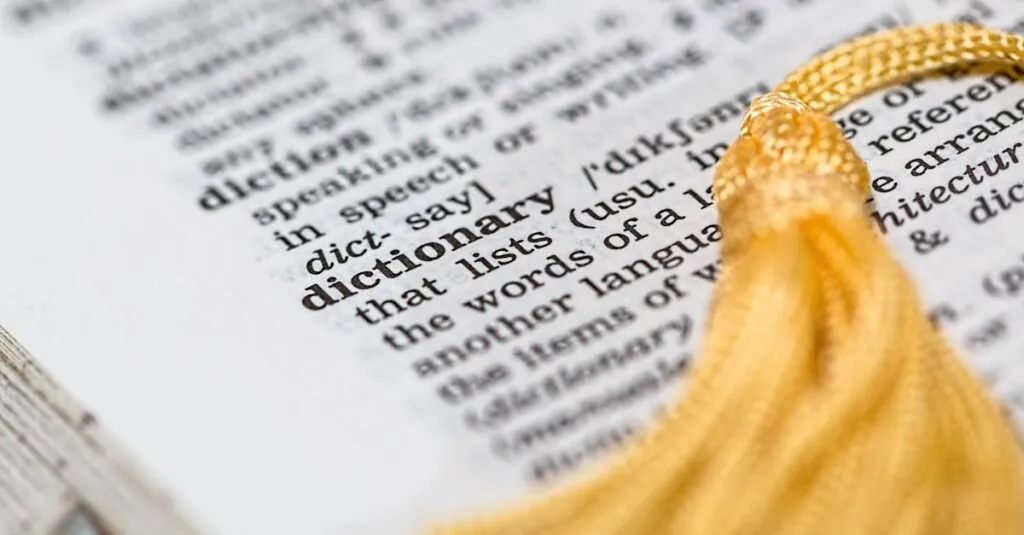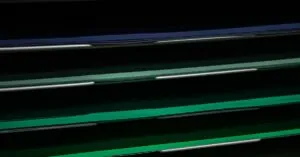Table of Contents
ToggleIn a world where traditional classrooms often feel like a scene from a sci-fi movie gone wrong, alternative education emerges as a breath of fresh air. It’s not just a quirky trend; it’s a revolutionary approach that challenges the status quo. Imagine learning in a way that actually makes sense for the individual, rather than fitting everyone into the same cookie-cutter mold.
Alternative Education Meaning
Alternative education encompasses diverse instructional methods that diverge from traditional schooling. Such programs prioritize individualized learning experiences, focusing on the unique needs and interests of each student. They often include project-based learning, experiential education, and unstructured environments where students explore subjects at their own pace.
Characteristics of alternative education vary significantly among programs. Various schools incorporate Montessori principles, emphasizing independence and hands-on learning. Others favor Waldorf education, which nurtures creativity and holistic development. These different models create opportunities for students to engage with their learning in meaningful ways.
Flexibility plays a crucial role in alternative education. Many institutions offer personalized curricula that adjust to students’ learning styles and preferences. Instructors often assess performance through ongoing evaluations rather than standardized testing, providing a more comprehensive understanding of student progress.
Communities increasingly recognize the benefits of alternative education. Research suggests students in alternative settings may experience higher levels of engagement, motivation, and satisfaction. They often develop critical thinking skills and a love for lifelong learning that traditional methods sometimes overlook.
Parents often seek alternative education for various reasons, including dissatisfaction with conventional systems or a desire for a customized learning environment. As options expand, more families explore alternative pathways to education that reflect their values and aspirations. The rise of homeschooling, cooperative learning, and online education further showcases the growing popularity of alternative approaches.
Historical Context of Alternative Education
Alternative education has roots deeply embedded in educational reform movements. Many early advocates sought to challenge the rigidity of traditional classrooms.
Early Influences
Disciplines like pragmatism and child-centered education greatly influenced early alternative education. The progressive education movement in the early 20th century emphasized experiential learning over rote memorization. Influential thinkers such as John Dewey championed the idea that education should be relevant to students’ lives. Schools began focusing on social interaction and problem-solving skills, laying a foundation for modern practices in alternative settings.
Key Figures in Alternative Education
Several key figures significantly shaped the landscape of alternative education. Maria Montessori developed her educational model in the early 1900s, focusing on independence and hands-on learning. Rudolf Steiner’s Waldorf education emerged in the 1910s, emphasizing creativity and holistic development. In the 1960s, A.S. Neill founded Summerhill School, promoting freedom and self-directed learning. These pioneers provided frameworks that have influenced countless programs, ensuring that alternative education remains diverse and adaptive to student needs.
Types of Alternative Education
Alternative education includes various innovative approaches designed to meet diverse learning needs. Some prominent types include the Montessori method, Waldorf education, and experimental schools.
Montessori Method
The Montessori method emphasizes self-directed learning through hands-on experiences. Students engage in activities tailored to their interests, promoting independence and critical thinking. Classrooms are typically mixed-age, allowing for peer learning. Instructors serve as guides rather than traditional lecturers. Research indicates that Montessori students often demonstrate advanced problem-solving skills and social adaptability. This approach focuses on fostering a love for learning rather than solely preparing students for standardized tests.
Waldorf Education
Waldorf education nurtures the whole child, emphasizing creativity, imagination, and artistic expression. The curriculum is often divided into developmentally appropriate stages. Students engage with storytelling, music, and practical crafts, which enhance cognitive and emotional growth. Teachers remain with the same class for multiple years, fostering strong relationships and a consistent learning environment. Studies show that Waldorf students frequently excel in creative tasks and exhibit strong interpersonal skills. This method integrates academic subjects with artistic endeavors, promoting a balanced educational experience.
Experimental Schools
Experimental schools challenge conventional educational paradigms by implementing unique teaching methodologies. These institutions often encourage student participation in curriculum development, fostering a sense of ownership over the learning process. Flexible schedules and interdisciplinary approaches allow exploration beyond traditional subjects. Data show that students in experimental environments display increased engagement and self-motivation. The emphasis on collaboration and real-world problem-solving prepares students for future challenges. Each experimental school may adopt different philosophies, making them adaptable and diverse in their educational offerings.
Benefits of Alternative Education
Alternative education offers distinct advantages that resonate with diverse learning needs. Its emphasis on personalized learning stands out as a key benefit.
Personalized Learning
Personalized learning adapts to individual strengths and challenges, allowing students to engage at their own pace. By focusing on each learner’s unique interests, alternative education fosters motivation and a deeper connection to the material. This tailored approach often leads to improved retention and understanding of concepts. Schools implementing personalized curricula typically utilize different teaching methods, ensuring that every student’s educational journey aligns with their goals. As a result, learners experience not only academic growth but also enhanced self-confidence, which is crucial for lifelong success.
Encouragement of Critical Thinking
Encouraging critical thinking serves as another vital benefit of alternative education. By prioritizing inquiry-based learning, these programs stimulate curiosity and the desire to explore complex ideas. Students actively engage in problem-solving and analyzing different perspectives, skills essential for navigating today’s dynamic world. Environments that promote dialogue and collaboration inspire learners to articulate their thoughts effectively and consider alternative viewpoints. Such exposure cultivates informed decision-making abilities, equipping students with the tools to thrive in real-world situations. By emphasizing these skills, alternative education prepares students for future challenges and fosters a love for learning.
Challenges of Alternative Education
Alternative education presents several challenges that require consideration for effective implementation.
Accessibility Issues
Accessibility remains a significant challenge in alternative education. Many programs lack adequate financial resources, limiting enrollment capacity. Geographic location also plays a crucial role, as some families may have difficulty finding nearby options. Transportation barriers further complicate access to alternative settings. Diverse socio-economic backgrounds can impact opportunities, resulting in disparities in enrollment among various communities. Addressing these issues requires targeted efforts to ensure all students can benefit from alternative educational methods.
Standardization Concerns
Standardization concerns emerge as alternative education programs often prioritize unique, personalized learning experiences. Assessing student performance through ongoing evaluations deviates from traditional standardized testing methods. This raises questions about how to measure success effectively in diverse educational models. Critics argue that without common benchmarks, it can become challenging to compare outcomes across different programs. A balance between individualized approaches and some standardization may be necessary to validate alternative education’s effectiveness while maintaining its core principles.
Alternative education represents a transformative shift in the learning landscape. By prioritizing personalized experiences and fostering critical thinking, it addresses the unique needs of each student. This approach not only enhances engagement and motivation but also nurtures a love for lifelong learning.
As families increasingly seek customized educational pathways, alternative education continues to gain traction. The ongoing evolution of this educational model highlights its potential to prepare students for the complexities of the modern world. With diverse methods and philosophies at play, alternative education stands as a compelling option for those looking to break free from traditional constraints.






